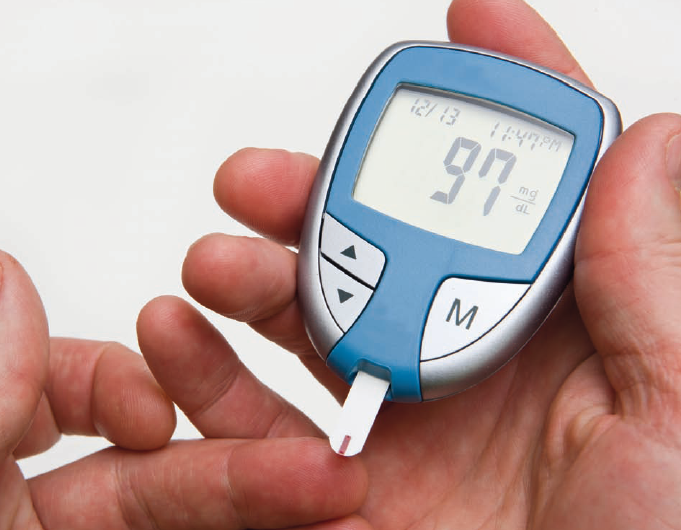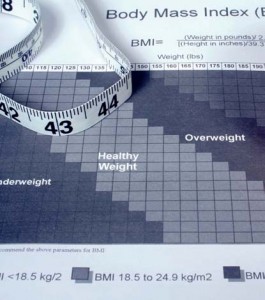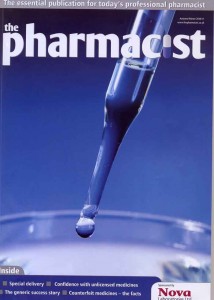 By S.N Kreitzman,V. Beeson and S.A. Kreitzmanof Howard Foundation Research Ltd
By S.N Kreitzman,V. Beeson and S.A. Kreitzmanof Howard Foundation Research Ltd
Interest in the use of weight loss to treat type 2 diabetes has been intensifying in recent years, despite the fact that the rapid therapeutic effect of weight loss on type 2 diabetes has been
well documented for decades and has been hitherto largely ignored. The current interest may be attributed in large part to a number of publications generated by evidence (from bariatric surgery) of the almost universal prompt remission of diabetes with weight loss after successful surgery.
One such study was published in the Journal of Endocrinology and Metabolism in 2004 by Cummings et al – ‘Gastric Bypass for Obesity:
Mechanisms of Weight Loss and Diabetes Remission’. In support of their efforts to promote the use of surgical techniques, the authors claimed that no more than 5-10 per cent of body weight can be lost through dieting, exercise or the few available anti-obesity medications. They further write, correctly, that: “Importantly, even mild weight loss confers disproportionate health benefits, in terms of ameliorating obesity-related comorbidities. Nevertheless more substantial and durable weight reduction would improve these ailments more effectively.”
And not correctly that:
“At present, bariatric surgery is the most effective method to achieve major weight loss. The best operations reduce body weight by 35-40 per cent.”
Quite a dramatic claim, but surgery is not the only effective means of achieving this amount of weight loss when necessary.
The very low Calorie diet
There is a readily available alternative to bariatric surgery, without the problematic aspects of bariatric surgery:
high morbidity and mortality risk, prohibitively high cost, possible post-operative addiction transfer and (in consideration of the large numbers of severely overweight people with or without diabetes) extremely limited availability. This alternative is the very low Calorie diet.
Detailed records have been kept of the weight loss results from GP practices and pharmacies. Using audit data, accumulated from UK pharmacies, it was possible to document cases where
dieters successfully lost in excess of 35 per cent of their pre-diet weight. These pharmacy weight loss programmes are based upon a replacement of all normal foods with a nutrient complete formula. There are many advantages to this approach over bariatric surgery, especially with severely overweight people. There is now an expanding literature – based upon numerous investigations into addiction – which demonstrate that in a considerable percentage of high BMI people, the same metabolic pathways that are generally recognised as part of the addiction profile are shared by people who are using food as a substance of abuse. In the case of every known addiction it is absolutely necessary to completely stop the abused substance. This is difficult when the substance in question is alcohol, tobacco or drugs; it is literally unachievable when the addictive substance is food, which is required in order to stay alive. While ultimately food is required for energy, there is no shortage of energy stored as fat and glycogen in overweight people. What must be supplied in order to keep people healthy are the vitamins, minerals, trace elements, essential amino acids and essential fatty acids. Depletion of any of these nutrients will compromise health. Post bariatric surgery patients are expected to reintroduce foods in limited quantities. In contrast, use of a nutrient complete formula provides all the essential nutrients in the absolute minimum number of Calories. This allows weight loss at the maximum safe rate, while allowing the person to completely stop eating the foods that they are abusing. This is the only approach that will interfere with the addictive problem and offer a reasonable chance of establishing a normal relationship with food in the future.
Counting the Calories
There is yet another important benefit to using a foodreplacement formula instead of traditional foods. Traditional foods are derived from various plants and animals and naturally differ in nutrient composition and Calorie contribution, so it is not possible to get an accurate estimate of the energy intake. Food composition tables (which present averages from a large number of samples) can differ widely from the composition of a specific sample. In contrast, the Caloric composition of a defined formula can be known with considerable precision. Dieters therefore can know exactly the number of Calories they are eating each day. It is well known that the Calorie deficit required to lose a pound of body fat is fixed at 3,500. The difference between the Calories in the formula and the Calories used by the individual based upon genetics and lifestyle will represent the rate at which the 3500 Calories is being depleted. Calorie utilisation for most people, especially severely overweight people who are not usually involved in massive exercise programmes, does not vary a great deal from day to day. Variations are trivial when it is realised that running a mile only consumes an additional 100 Calories, so the number of Calories used each day is basically constant. This explains the essentially straight line pattern of weight loss with VLCD. From the daily changes in weight, it is easy to determine the number of Calories used by each individual day after day. This then will inform the individual of the critical Calorie intake that will determine whether weight is gained, lost or maintained. There is no other method to gain this information under real life conditions. Cummings et al, in the paper cited above, provide estimates of the cost of bariatric surgery (2004 data) represented as QALY (quality adjusted life years), ranging from 5,400 to $36,300, which they state is well under the $50,000 generally regarded in the United States as being cost effective. It might be worth considering a VLCD pharmacy programme
which will routinely provide weight losses of one stone (6.3 kg) a month for women and one and a half stone (10 kg) for men. And unlike bariatric surgery, the programmes can be used with people who have far less weight to lose than the BMI 35-40 subjects reported here. These programmes are even suitable for obesity prevention in overweight (but not yet obese) individuals who fall into the range of BMI 25-30. This is a far more appropriate contribution to public health and prevention of diabetes.
Weight loss and type 2 diabetes
Type 2 diabetes is a disease of excess weight. There are countless thousands of papers in the literature that concur with this statement. It would seem to be obvious therefore that treatment protocols should focus on rapid and effective weight loss for patients with diabetes. If one thinks ‘diabetes is excess weight’, one would be right most of the time.
Conventional weight loss options have generally proven so unreliable that it is understandable and (almost) forgivable that weight loss is not vigorously promoted for treatment of
type 2 diabetes. Nevertheless, there is a much better option than bariatric surgery for weight loss. Worldwide research spanning a period approaching 40 years has repeatedly
demonstrated that sufficient weight loss to treat diabetes can be achieved, and indeed is currently being achieved in the UK and Ireland by a large number of pharmacists.
Furthermore, fully established diabetes is only part of the problem (even though the UK is reported to be spending about £9 billion a year dealing with diabetes).
There is also a well recognised pre-diabetes syndrome with resistance to insulin, hypertension and elevated blood sugar and lipids, the so-called syndrome X. The best recognised treatment is also, of course, weight loss. A very detailed meta-analysis and review of co-morbidities related to obesity and overweight from British Columbia, published in 2009, identified 18 co-morbidities contributing, according to the authors, to a very large future disease burden as weight continues to be a medical problem. Pharmacists deserve considerable recognition for providing a service for remission of diabetes and relief of co-morbidities, where present, without depleting the assets of the National Health Service.
And, crucially, praise for the effective treatment of excess weight in hundreds of thousands of documented patients.
PDF version: contrast vlcd & surgery pharmicist 2012(1)










